Around the Bloc: Russian Officials Deny Burning ‘Undesirable’ Books
Mining college says it removed Soros Foundation books from its library but none were burned.
More...We kindly inform you that, as long as the subject affiliation of our 300.000+ articles is in progress, you might get unsufficient or no results on your third level or second level search. In this case, please broaden your search criteria.
Mining college says it removed Soros Foundation books from its library but none were burned.
More...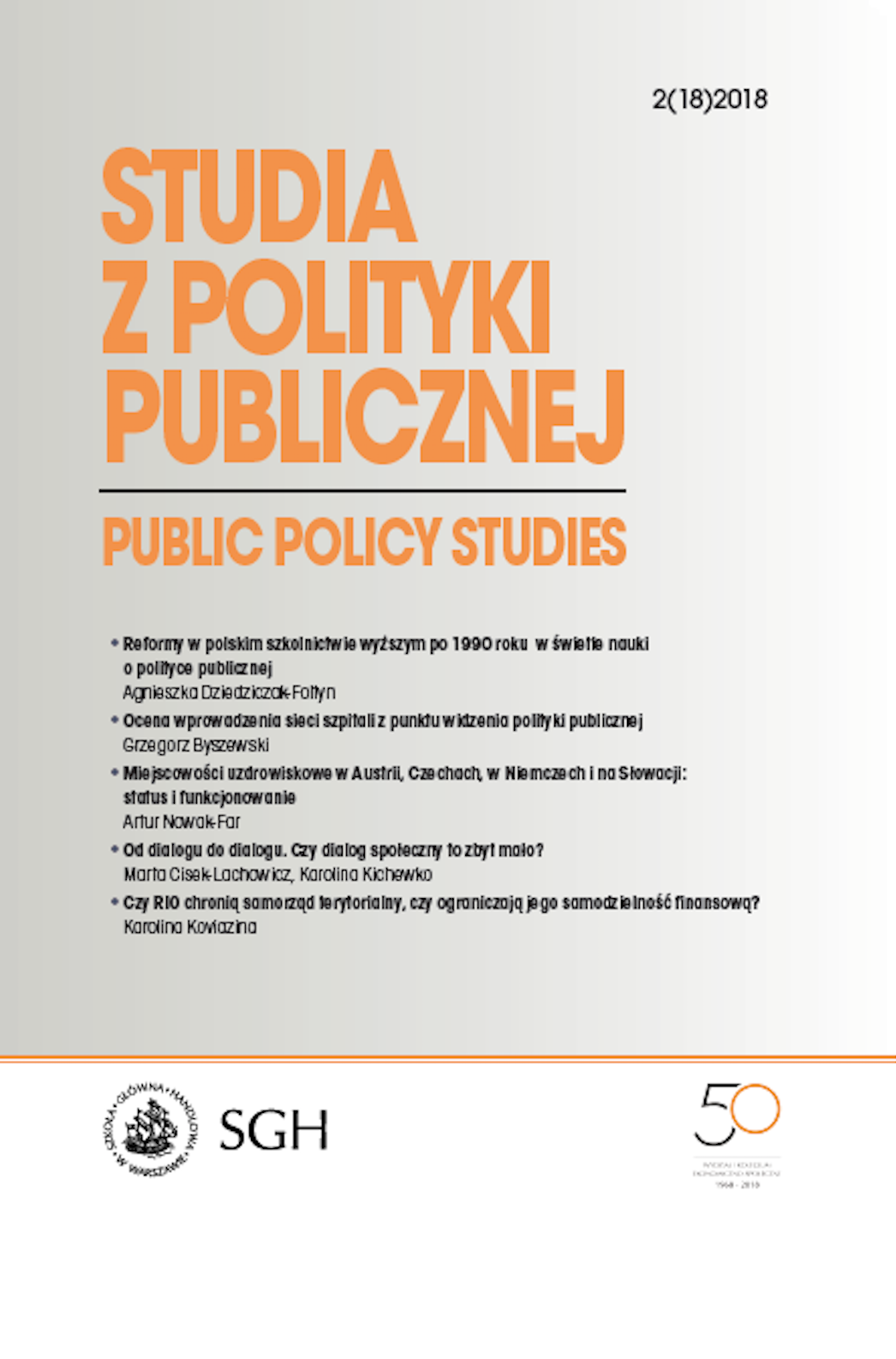
The mission of the European Community and later the European Union was to take all actions that reduce disparities in economic development among Member States and their regions. These objectives were achieved through creating a customs union, a single European market and economic and monetary union, and the introduction and implementation of trade, agricultural, cohesion, competition policies. The problem of obtaining financial resources that would allow the EU to fulfill the tasks assigned to it by treaties and other legal acts is inseparable from the functioning of the European Union. The EU needs to raise new own resources. In recent years there have been proposals for the introduction of new own resources in the form of a uniform VAT which would apply equally to all Member States and in the form of a tax on financial transactions. The principal disadvantage of the new methodology for calculating own resource based on VAT on supplies of goods and services, acquisitions and imports subject to the standard rate of VAT in each Member State is its complexity. Despite the efforts made, the abovementioned taxes still will not be typical own resource that directly supplies the budget of the European Union. They will still be transferred through state agencies or economic entities for tax on financial transactions and they will continue to be dependent on the systems and tax rates of each Member State.
More...
The Norwegian Tax Office constitutes an institution with a long tradition and history, but as well opened to the citizens' needs and meeting their expectations. It is an institution which is in a constant movement through modernisation and improvement of its services. The history of the tax system goes back to the medieval times. The tax policy has been developed since Middle Ages, when the main role was played by the church, then by the king or the state. In the next periods the tax offices were managed by the municipalities and at last, in the 60. were fully taken over by the state. A milestone in the Norwegian Tax Office's history was a reform from 1911, where the obligatory tax return was introduced and from 1957 where the current each-monthincome tax payment was implemented. For those running own businesses the advance tax payment was developed. These solutions have been applicable with success since then until now. The next big progress was made in the late 70. when the leadership was taken over by the economist, not a lawyer which was a rule then, Erling Ree-Pedersen, who started managing the organization and seeing it as a whole unity. Thanks to this approach the Tax Office has been moved closer to the tax payers and started to meet their expectations. The technological solutions, which occurred in the next years and have been developed since, have just proved that the institution which is so little popular can be helpful, friendly and approachable through the newest technologies. The Norwegian Tax Office is an institution which evokes trust among citizens, especially that the main aim of the tax policy is supporting the state with sufficient income level. Simultaneously the main aim of Norway as a welfare state is supplying the citizens with the appropriate life standard through, among others, efficient tax policy, allowing to finance the main fields within public policy.
More...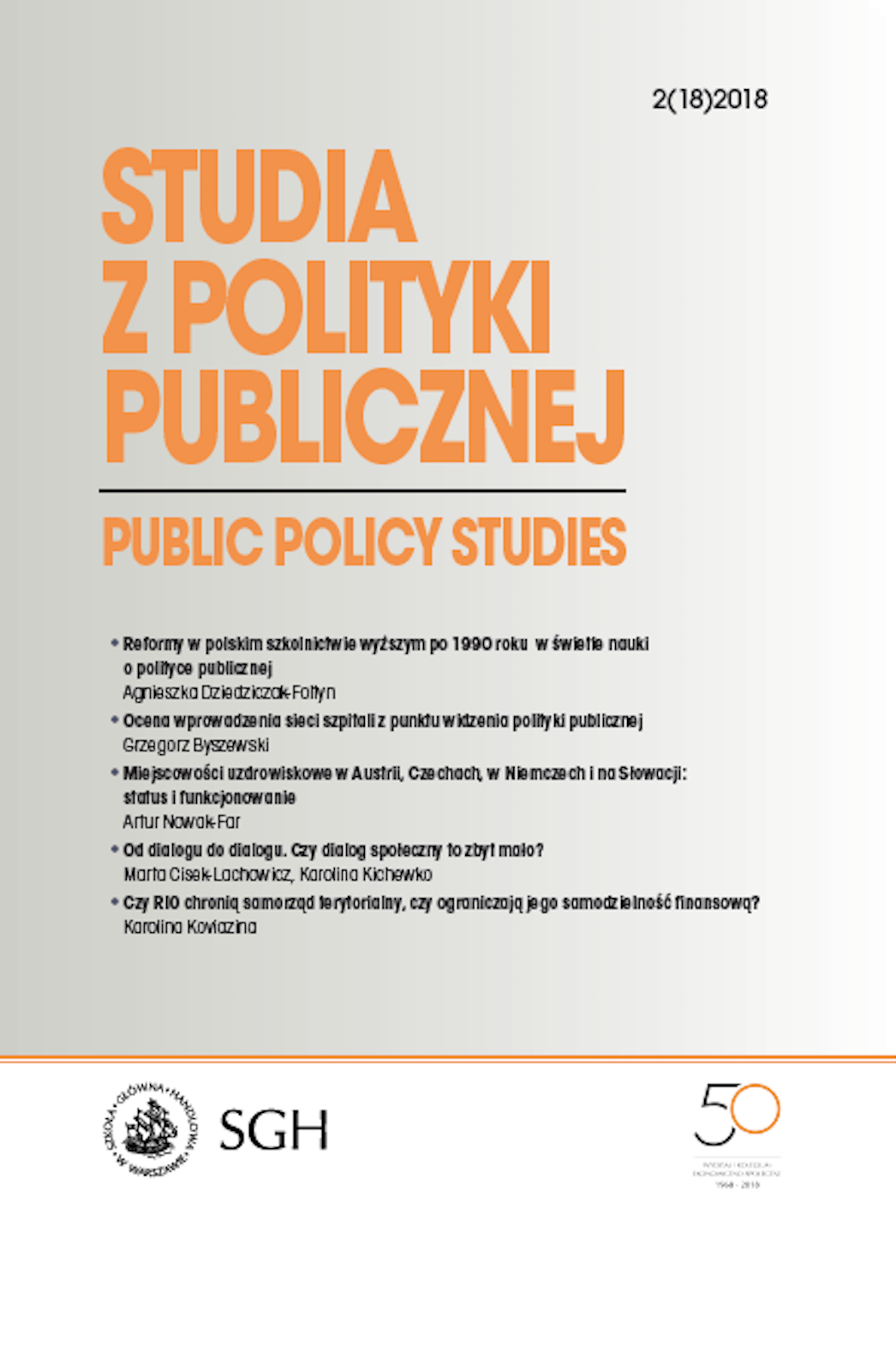
Multi-level governance is now an established field of public policy research. In this context there is a need to introduce two new concepts: substantiation of public policy goals and multi- level coordination of public policy goals. In the study based on this assumption a qualitative approach is used. Usefulness of these two concepts was proved by participatory action policy research on one specific goal substantiated and coordinated within Europe 2020 Strategy in the policy area of poverty. In the course of the research (2012-2015) the author was a representative of the network of social NGOs in the governmental body responsible for implementation of the Europe 2020 Strategy in Poland. The main action research tool was an attempt to modify the goal of poverty reduction decided by the government in 2011. In that process rich data was generated, analyzed, interpreted and used for subsequent actions. The effect of the research is a deep insight and understanding of multi-level governance process in a specific policy area and a proposal for two new concepts. Emerging new research areas were proposed and discussed.
More...
The aim of this publication is to outline changes that have been observed in Poland and to present the place of the Polish industry, including production, services and international trade, since the accession to the European Union. Rating highly the role of industry and proper conducting of a pro-growth policy in Poland and the European Union, one part of the study concerns the analysis of basic indicators of the Polish industry structure and the final part the realization of the Europe 2020 strategy. The analytical description in the publication was enriched with a wide set of tables, as well as a crosssectional collection of information on industry in Poland and on the European Union member states in rank order. The high dynamics observed in Poland resulted, among others, from an over double growth in the production of electrical equipment, computers, electronic and optical products as well as of metal products. The Strategy Europe 2020 is a socio-economic development programme for Poland and the EU growth. The goal of the Europe 2020 strategy is to create the economy - based on knowledge, low-emission policies promoting environmentally friendly technologies, making an efficient use of resources, and also aiming at social cohesion.
More...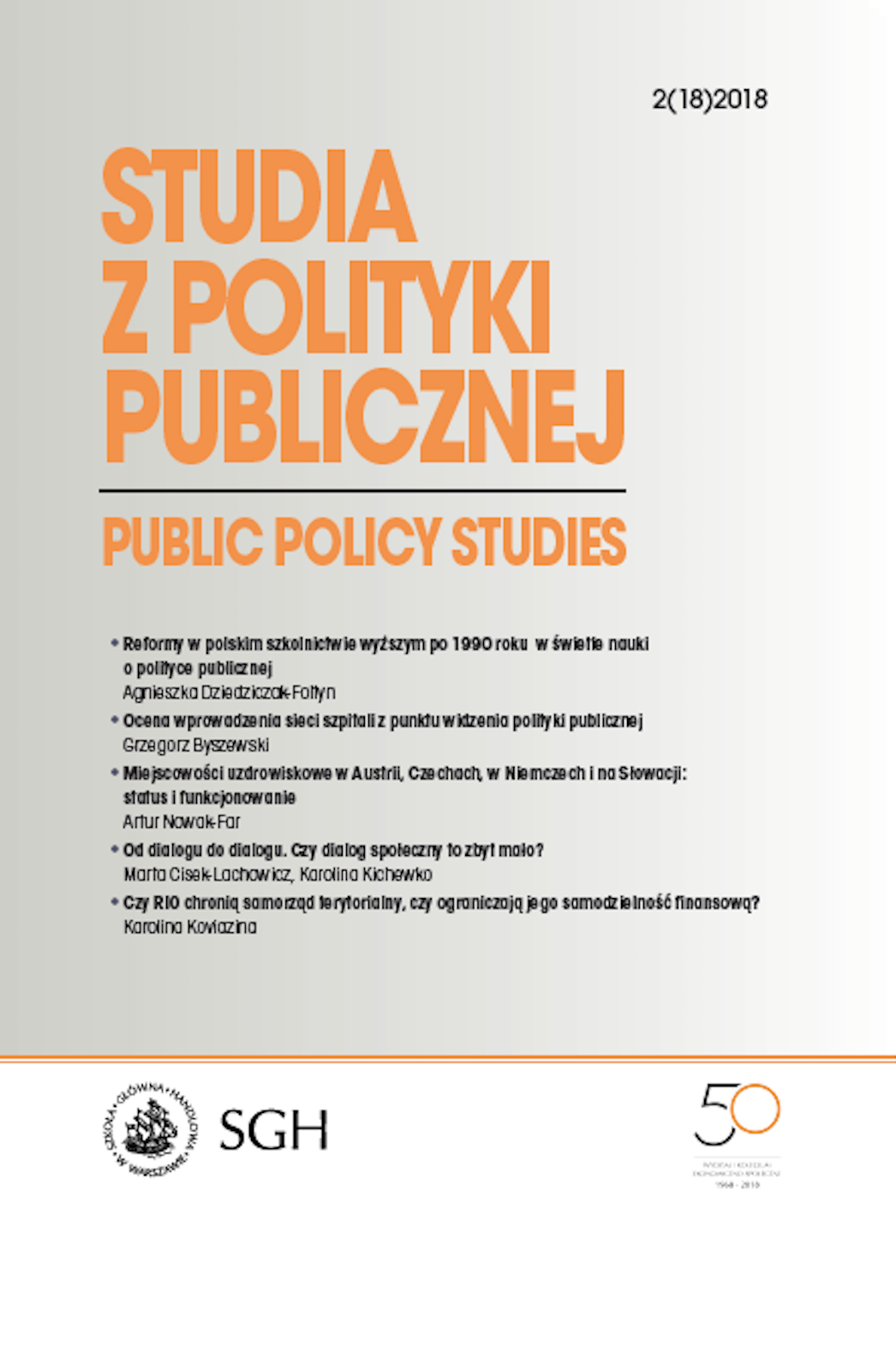
Since the beginning of the political transition in Poland an unproductive discussion has been continued concerning the role of economic self-government in the system of local government. The current legal regulations do not provide business chambers with the status of public legal unions. They tend to be based on the facultative nature of the ties between entrepreneurs, which is the main cause of the weakness of the Polish economic self-government, or rather the economic quasi-self-government. The consequential structural and programmatic weakness of entrepreneurs' organisation seems to be the major obstacle in creating an effective system of local governance that could equalise the excessively asymmetric relations between the local government and the representation of entrepreneurs. It is beyond doubt that the lack of such structures in the area of public institutions is the main reason for marginalising them by the government and local authorities, which do not see the need to make any concessions for the diffused economic environment. Given this context, the most rational solution seems to be the creation of a common economic self-government, which will be incorporated into the system of public authorities.
More...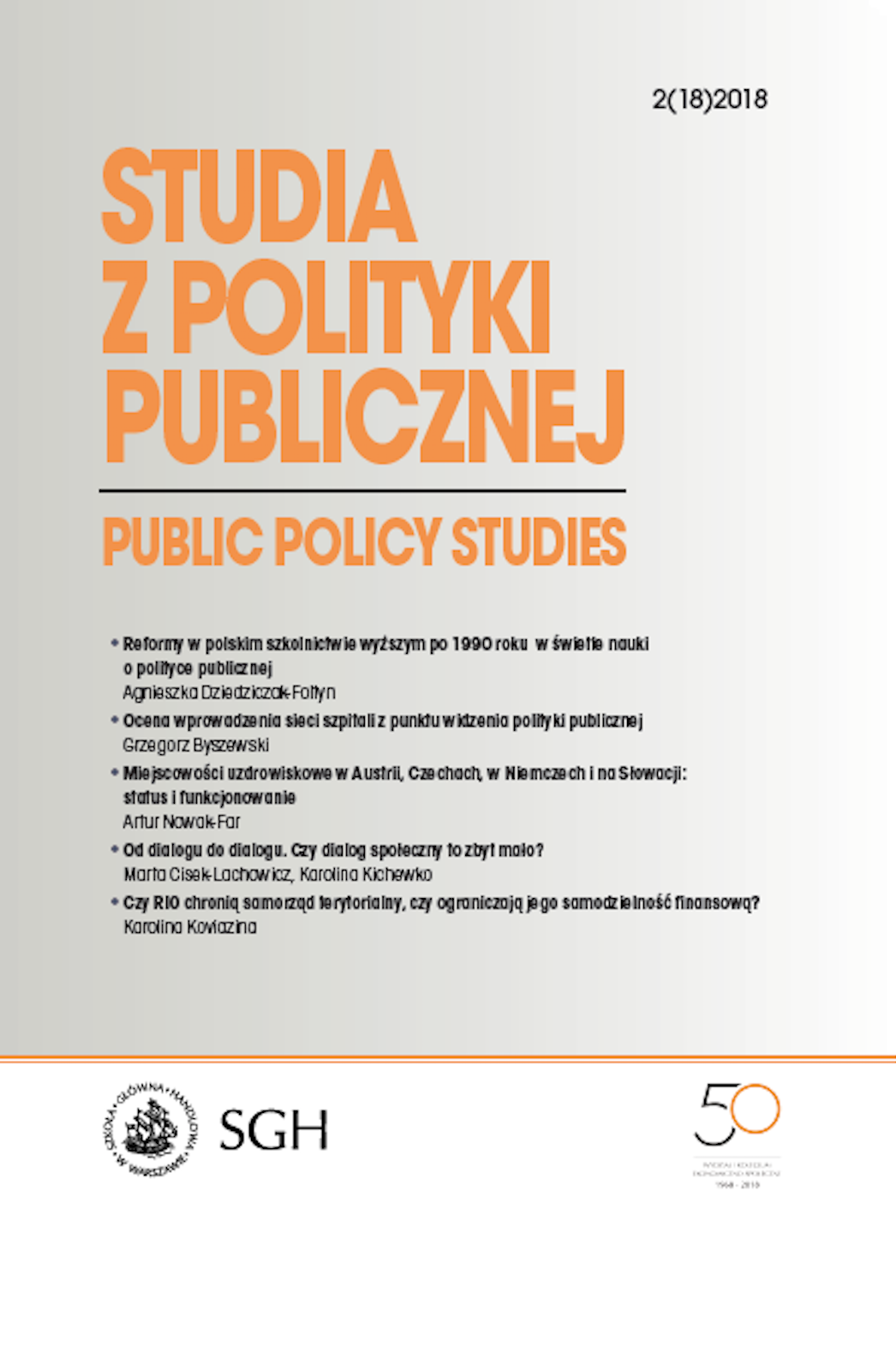
The article intends to illustrate the climate, social and primarily health effects resulting from the emission of various substances in the process of burning coal and waste, and the legal framework related to the issue of air pollution as a result of low emissions. The authors discuss also the main directions of the changes proposed in the so-called "anti-smog" law. The authors pose the thesis that Poland has still not solved problems of low emissions, despite the measures taken in the amendment to the Environmental Law. In their view, Poland still has a long way to go before it creates a low-carbon economy. The traditional use of coal in Poland hinders putting ecological changes into practice. Incineration of waste produced by households is another social pathology. Besides municipal waste, some hazardous waste also produced in households can be found. The level of environmental education is very poor in this respect. However, without significant actions, we will continue to destroy our own and our neighbours' health, contribute to climate change as some climatologists' think and pay penalties for failing to meet ecological commitments to the European Union as well.
More...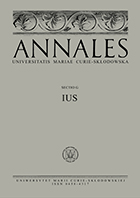
The institution of “poor law” has a long history. The regulations adopted in the Polish civil law of the interwar period guaranteed free and unfettered access to the courts for the parties. The introduction of the “right of the poor” was justified by litigation, fiscal and social reasons. The Code of Civil Procedure defined the criteria for the use of this institution, entitled entities, as well as the effects of granting “poor law”.
More...
The subject of this study is rooted in the realities of Poland of the authoritarian period. This fact has been emphasized in the title and considered a circumstance that defines the direction and scope of the research activities. The article is divided into three essential parts. The first one points to basic facts related to the status of courts of law in the authoritarian Poland. The broad definition of the title concept was adopted. Certainty is understood here as tantamount to stability of judicial service employment relationship and covers both irremovability, non-transferability and non-suspension, as well as predictability and transparency of promotions and service conditions, especially in terms of determining salaries. The second part of the article provides an analysis of the constitutional regulation of certainty of the position. The third part comprises remarks on the actual role of the Constitution, it covers findings on the manner in which the title institution was regulated in lower-tier normative acts and remarks on the practice of application of law. The research leads to the conclusion that certainty of judge’s position was illusory. It was being questioned at all the three interrelated levels: constitutional, regular legislation and the practice of law application.
More...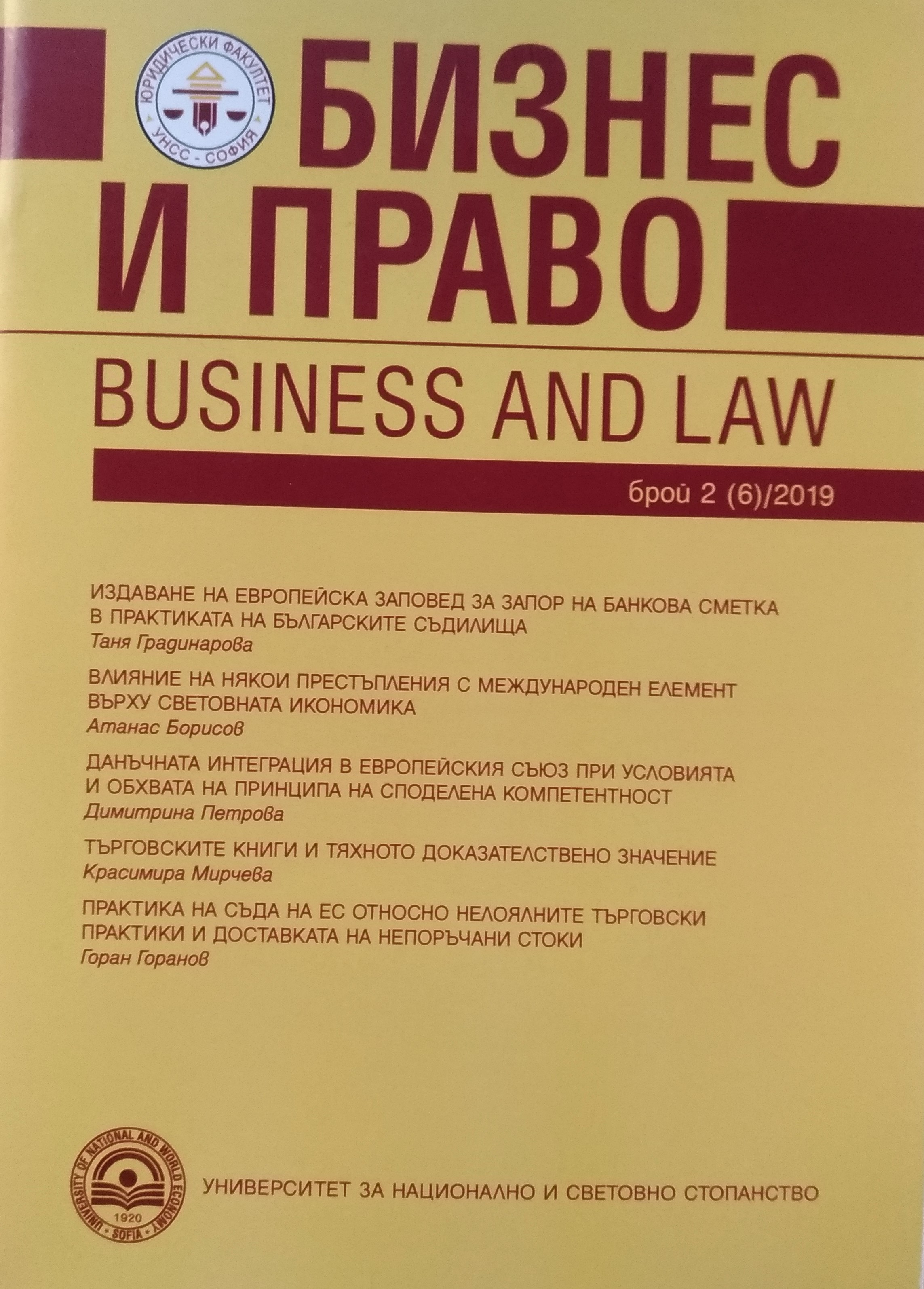
The article briefly analyses the legislative competence of the European Union in the field of indirect and direct tax integration. It clarifies the specific status of shared competence of the Union, as a source of legislative competence for tax integration, governed by the principles of conferral, subsidiarity, and proportionality.
More...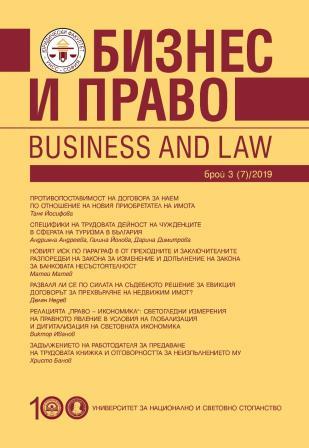
The article examines how the eviction affects the transferring of ownership contract (case № 1/2019, General Meeting of the Civil and Commerce Chambers of the Supreme Court of Cassation). According to the position maintained, the eviction judgment does not ex lege cause the termination of the contract. Instead – according to the general principles of Contract law – it has to be another, special claim for the termination.
More...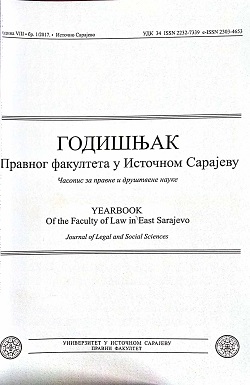
Early research on clientelism spans over a period between 1960 and 1980. Early publications sparked a debate on the content, meaning and impact of clientelist ties. Researchers tackled the issue of explaining individual cases on different levels of focused analysis, rather than contributing to the common understanding of what clientelism “is” and “how” exactly it influences society. This paper presents an overview of contemporary research on clientelism, its theoretical conceptualization, early traces of the use of exchange relations of power and resources, a historical overview of the utilization of clientelist networks by political actors to ascend to power and survive in power and lastly the instrumentalization of clientelism to stabilize society. Later on, the paper provides a quantitative analysis of contributing factors to clientelist tendencies between political parties and voters in the Republic of Macedonia.
More...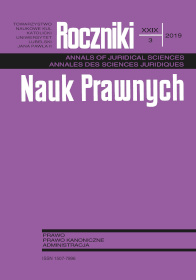
The article presents the results of research of the legal status of the Polish Armed Forces in the Constitution of the Republic of Poland. The key problems include the role of the Armed Forces in the implementation of the main goals of the Polish state and their relations to other constitutional principles and the duty to defend the Homeland. The article also presents the competences of the executive and legislative authorities in the aspect of defence and security as well as civil and democratic control over the Armed Forces. Polish legal solutions were compared with the constitutions of NATO member states – Germany, France, Spain, Greece, Denmark, Norway, Estonia and the Czech Republic.
More...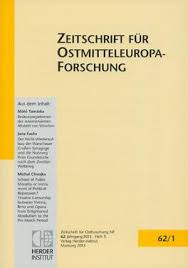
For a detailed list of reviewed books please view the Table of Content-file above.
More...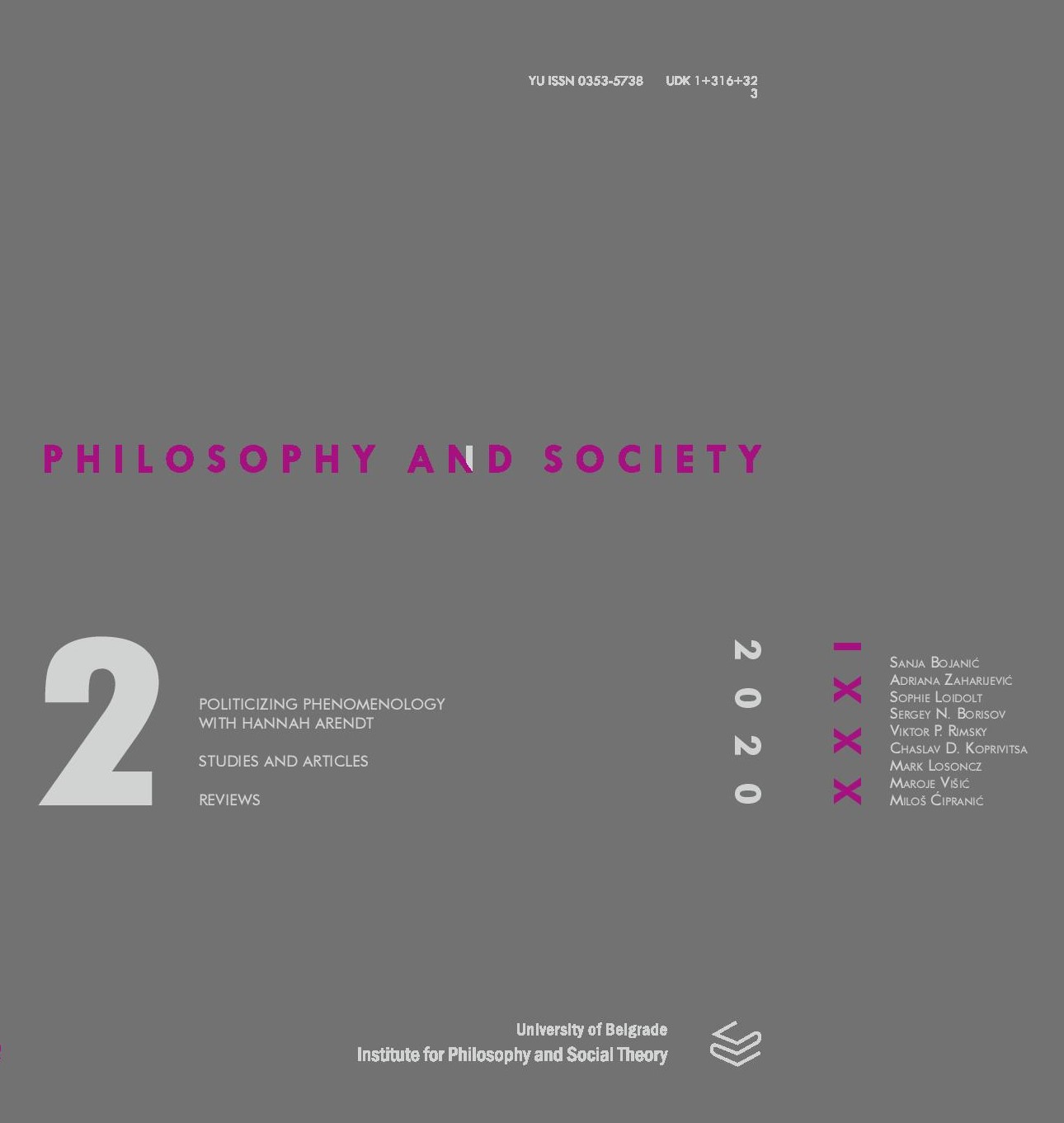

“Deutsches Recht” is a German magazine. It was important for lawyers in the Third Reich during World War II. In the pages of this periodical, apart from studies on the law in force in Germany, texts related to the system and law of the General Government were also published. The latter were mainly propaganda and, to a lesser extent, substantive. Among the authors of these publications prevailed people associated with the implementation of German occupation policy in GG (German functionaries of the occupation administration, German judges and lawyers).
More...
Aleksander This (1803–1864), an outstanding Polish lawyer, arrived in Petersburg after the outbreak of the November Uprising. There he got involved in scientific work and in 1838 he published his article entitled Notice sur la coordination des lois provincionales de L’Empire de Russie in a French juridical magazine “Reuve étrangère et française de legislation”. The text presents the problem of codification of provincial laws on the Polish territories taken over by Russia during the annexations by the end of the 18th century. It includes the description and the assessment of the legislation of the Polish law in the Commonwealth of Poland and Lithuania. The author elaborates not only on the systems of laws that were in force and their classifications but also on the attempts to codify the law between the 14th and 18th centuries. He gives a detailed description of ordinary law, particular laws and auxiliary laws that functioned in former Poland. This critically evaluated lack of the codification of law, especially the failure of the codification in 1532, the so-called Rectification of Laws and The Collection of Juridical Laws by Andrzej Zamoyski from the years between 1776 and 1780. The advantage of the publication is the introduction of the Western European readers to the problems of the former Polish law.
More...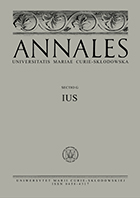
The constitutional period of the Kingdom of Poland was a relatively calm time between the Napoleonic wars and the November Uprising. In reality yet the problematic of war substantially determined the horizon of public discussion about war in the Polish political thought between 1815 and 1830. Subsequently, the views of a conciliatory, moderate and radical environment were presented. The analysis is supplemented by selected historical narratives and the comments by the representatives of science.
More...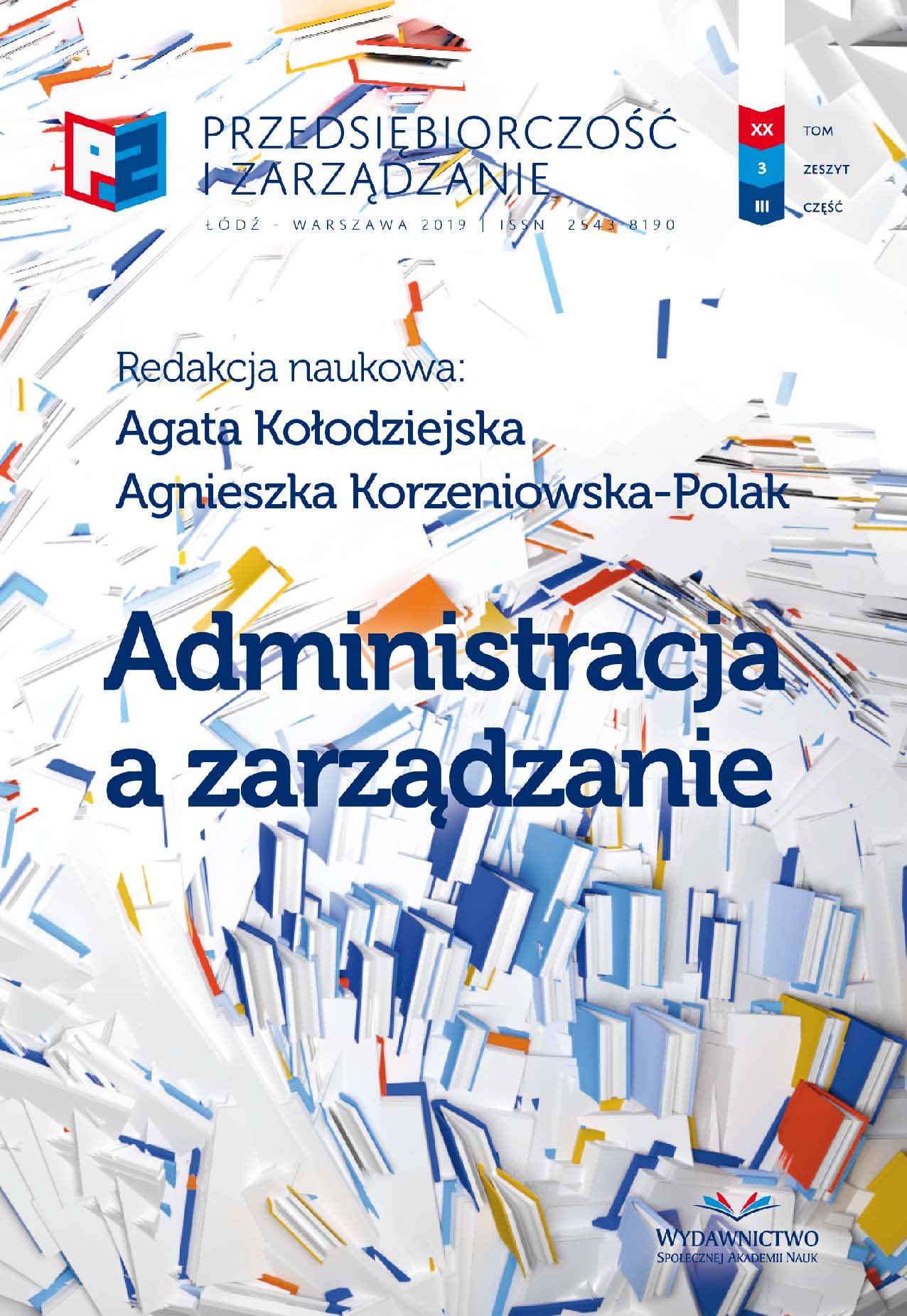
Analysis of the protection of human rights in the context of the general principles –Article 38, paragraph 1 c of the Statute of the ICJ – has led to conclusion, namely that rules can also serve the role of a fall-back provisions by virtue of specifying the content and the consequences of regulations of the law. In the cases of missing procedural principles in treaties or the customary law, rules can be applied to supplement or rectify the norms of the treaty. The increase in threats to human rights, disproportions in economic development, environmental problems, poverty, discrimination and other challenges of the 21st century affirm the legitimacy of implementation and acceleration of the message of the universal rules. The international law is constantly exposed to dynamic interactions. New branches of international laware formed, whose convergence by means of a common axiological basis can be facilitated by the rules. Axiological distinction of treaty norms, which should be constantly progressing, may facilitate adaptation of the international law to the emerging phenomena and challengesin the area of human rights protection.
More...
The article addresses the question as to whether the Polish Constitution lays a solid foundation for a higher level of consumer protection as required of the member states by EU regulations. The research has been conducted in the context of article 76 of the Constitution of the Republic of Poland and article 169 of the Treaty on the Functioning of the European Union.
More...